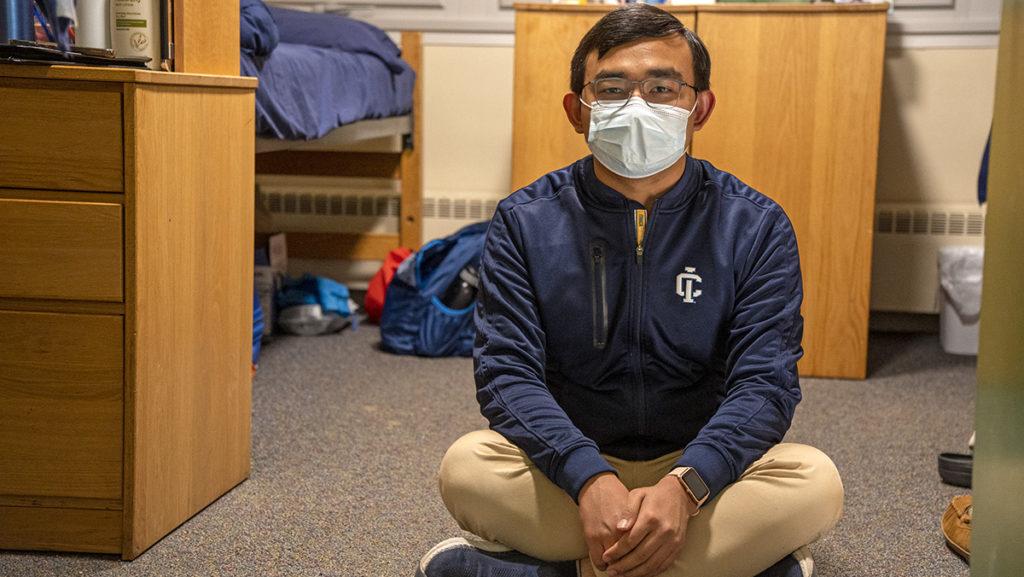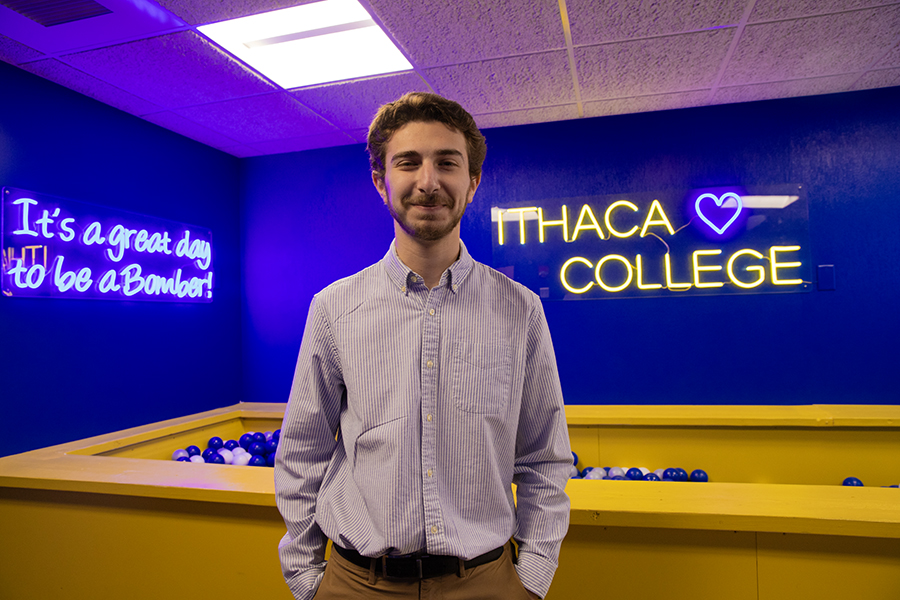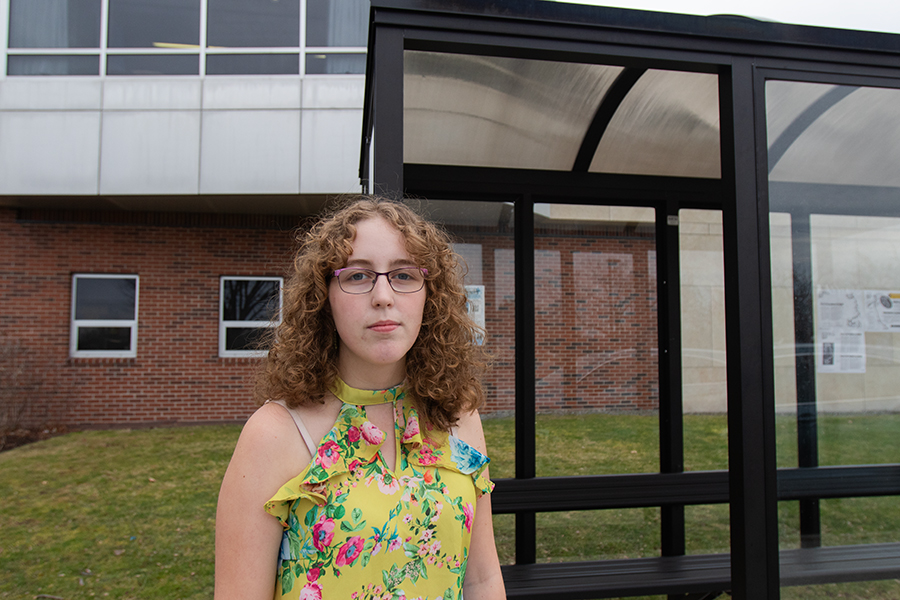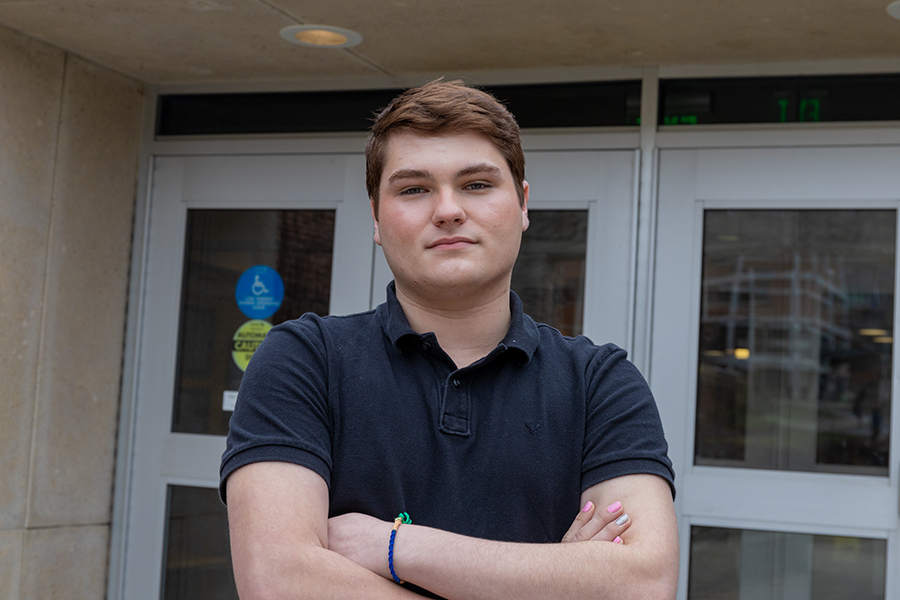Editor’s Note: This is a guest commentary. The opinions do not necessarily reflect the views of the editorial board.
Spring 2023 started the new year with a barrage of changes for Ithaca College: the closure of the substation route from Towers to Boothroyd Hall, the reopening of the Towers Marketplace as Towers Eatery and the change of the college’s COVID-19 and Health Policy.
At the All Student and Family Gathering that took place two weeks before the semester officially began, students and their family members were told that the college would be significantly scaling back its COVID-19 infrastructure when it comes to resources for the campus community, ending the requirement for anyone who tested positive with the virus to isolate in Boothroyd Hall. All Resident Assistants were asked to convey the same message to the residents on their floors. While it may seem like the ideal next step as more people get vaccinated, boosted and the treatment duration decreases, the stigma around the virus and its symptoms have yet to vanish from the public’s memories.
On a random Wednesday afternoon, my roommate texted me that he had tested positive for COVID-19 and that I should get tested too. By this time, most people know how the panic goes: that anxiety before receiving the test results, the countless thoughts and scenarios that run through your head about how the rest of your week, or longer, is going to be impacted by the result of that test. I was fortunate enough to get only a single line on my test, but little did I know it was only the onset of my troubles. The word COVID-19 exposes a certain reaction in people that the flu or common cold stopped attracting years ago.
My biggest concern was finding a place to sleep. As per the Office of Residential Life, I was informed that I could still stay in my room, the same room my roommate was self-isolating in. I do not consider myself an expert on the topic of virus transmissions, or even the current state of COVID-19. However, the idea of spending a night in the same room as someone who has been recorded to be carrying the virus seemed unappealing, to say the least.
As someone who holds multiple on-campus jobs, is fairly active in student clubs and interacts with a plethora of people on campus daily, the proposition of exposing myself to more of the virus for an extended period of time is not fair to my friends, coworkers, classmates or professors, many of whom could be considered high-risk for the virus. If I were to choose to join my roommate in self-isolation for the required duration, the burden of falling behind on academics and unearned income will linger on, especially as an international, first-generation student who relies on my on-campus work to earn “pocket money.”
There needs to be better planning and solutions for those diagnosed with COVID-19 and their roommates, particularly in a residential college like Ithaca College that requires its students to live on campus until their senior year. The goal of placing this virus in the same box as the flu and common cold cannot be achieved at a time when our community is still reeling from the pain and loss of the past two years. The social elements of the virus’ effect on day-to-day life cannot be ignored in decisions that dictate the lives of more than 5,000 students.
As it turned pitch black and wind chills set in, I still needed to figure out where I planned on sleeping. Do I go back to my room and risk exposure? Try to convince a friend to let me stay with them? Test my chances of sleeping in the common lounge? I did not have the answers to those questions yet.
At the end of the day when my body would not let me stay awake for much longer, I ultimately decided to go back to my room. I wore a mask inside, only removing it to sleep so that I could breathe. My situation was still a pretty fortunate one, my roommate did not show any severe symptoms and was asymptomatic for the majority of the time. But not everybody’s situation will be like mine. For those who happen to be suffering from or exposed to more extreme symptoms, options seem much more limited. All aspects of a student’s physical, mental and social well-being should be taken into account in Ithaca College’s Health Policy as the pandemic is still a way away from reaching its conclusion.











